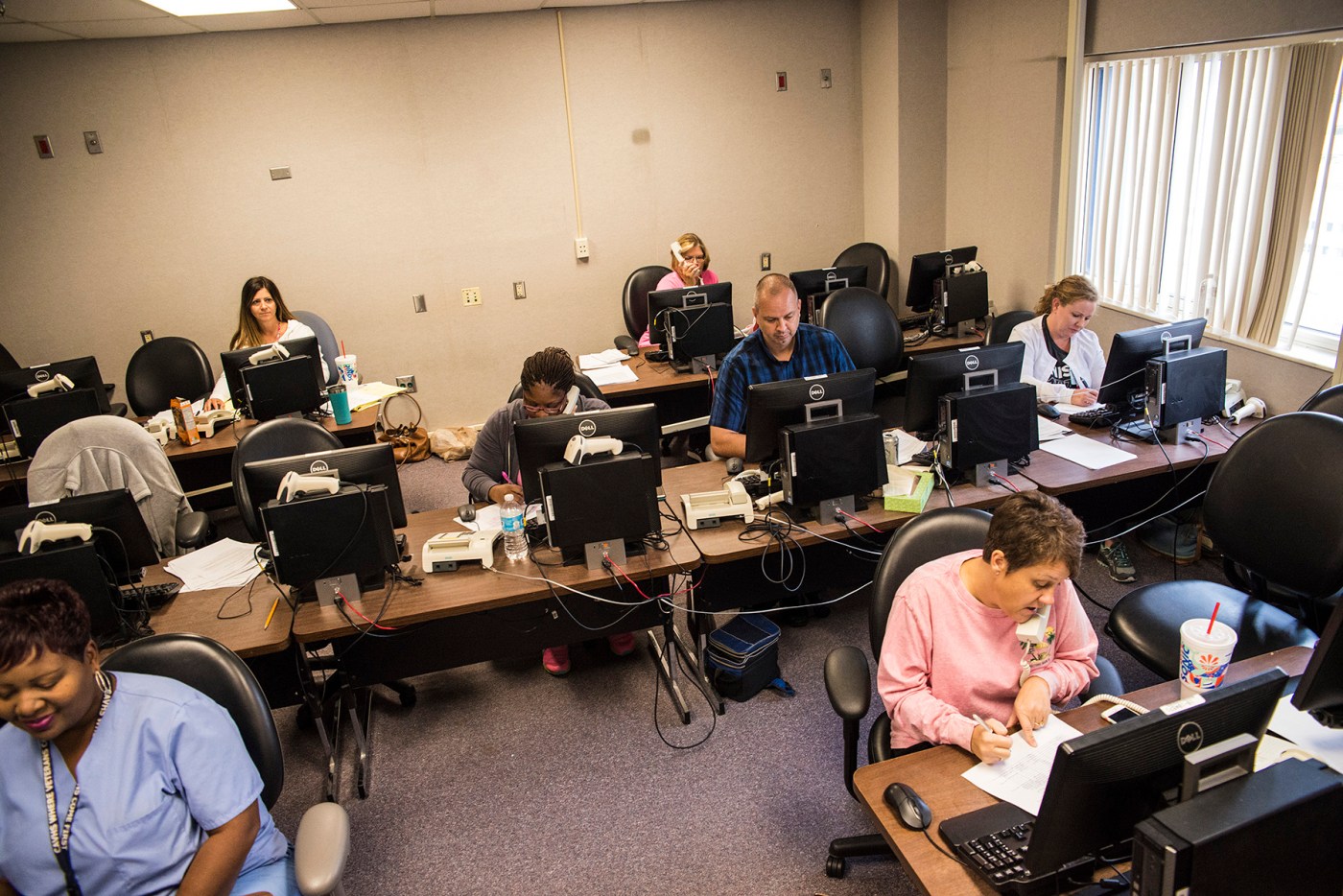HURRICANE HARVEY UPDATE: For more information about the impact on VA facilities and services, click here.
On an otherwise quiet Sunday in Little Rock, things are not so quiet on the seventh floor of the VA hospital. Fifteen Central Arkansas Veterans Healthcare System (CAVHS) employees, including five nurses, are taking calls from Veterans throughout south eastern Texas, Louisiana, Mississippi, Arkansas and Oklahoma.
Under normal conditions, after-hours calls, on weekends, holidays, and evenings are routed to the Michael E. DeBakey VA Medical Center (MEDVAMC). The Houston medical center serves as the call center for the eight VA medical centers making up Veterans Integrated Service Network 16 (VISN 16).
Conditions were other than normal this past weekend, however. As Hurricane Harvey barreled in to the East Texas coastline, Friday, the CAVHS call center activated, to support Houston’s VA, as they prepared for the storm. Heavy flooding, and hurricane strength winds in Texas dramatically increased the operational tempo for call center staff.
As phones ring at a constant, Pat Kloske, normally the nurse manager for Little Rock’s two specialty clinics, stands tall directing calls, checking the status of the staff and answering questions. Another nurse is helping an ill Veteran in the Houston area. Area ambulances cannot get to him so she’s reaching out to local fire departments on one line while coaching the Veteran’s family on another.
As the category 4 storm slammed the Texas coast, the Little Rock VA’s Patient Care Services team put up their hands and activated the temporary call center. Flooded roads and hazardous conditions in Houston, and surrounding cities, all the way to the Gulf Coast, had concerned Texas Veterans and their families in need of medical services, or with questions about hospital operations and its clinics.
Employees are working eight hour shifts to provide 24/7 service. They have answered routine questions to those of survival.
“We have nurses, administrative staff, and management all taking calls,” said Pat. “We’re extremely proud to be helping out during this disaster, and we’re keeping the Houston VA and our Veterans in our thoughts and prayers.”
There are moments when the room — normally a computer training lab — is quiet, and the uncomfortable silence is broken only by the occasional call. Before long, though, the room breaks out into a cacophony of ringing and chatter. “Our average time to answer is eight seconds,” says Pat. “We love that we get to help our fellow Houston VA, and we especially love taking care of Veterans.”
A phone rings at her desk. “VA call center. My name is Pat. How may I assist you today? Yes sir, we are assisting with answering calls during Hurricane Harvey. How may I help you?”
It is unsure when calls will be routed back to Houston, as that staff responds to a natural disaster of historic proportions. For now, across state lines, the dedicated staff of Little Rock’s VA answers the call.
About the author: Chris Durney is the Public Affairs Officer for the Central Arkansas Veterans Healthcare System
Topics in this story
More Stories
Watch the Under Secretary for Health and a panel of experts discuss VA Health Connect tele-emergency care.
The 2024 National Veteran Suicide Prevention Annual Report provides the foundation for VA’s suicide prevention programs and initiatives.
Theranostics is a specialized field of nuclear medicine that uses a two-pronged approach to diagnose and treat cancer.






